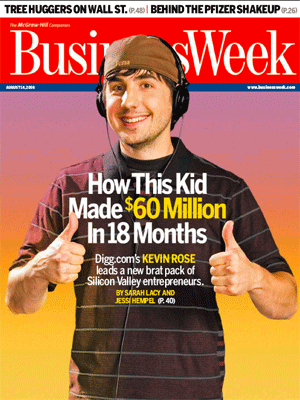Today I caught up with a very peculiar Times Week in Review piece by Ryan Lizza that perhaps was meant as a covert satire of some kind. How else to explain the thesis of “The YouTube Election” — that the rise of populist Web video might harm the Republic, because more voters will get the chance to see their elected representatives in unguarded moments?
I’m not making this up. Lizza, and the consultant pundits he quotes, seems to think that the problem with George Allen’s “macaca” incident wasn’t that a sitting U.S. senator used a racist epithet on the public stump but rather that technology has empowered the public to witness such revealing incidents.
If campaigns resemble reality television, where any moment of a candidate’s life can be captured on film and posted on the Web, will the last shreds of authenticity be stripped from our public officials? Will candidates be pushed further into a scripted bubble? In short, will YouTube democratize politics, or destroy it?…
Letting voters see and hear what candidates say will strip them of their last shreds of authenticity! We must fight for their right to keep their off-color remarks under wraps! Note that Lizza is suddenly talking about “any moment of a candidate’s life” being exposed — but all the examples he cites from the campaigns of Allen and Joe Lieberman are of public statements in public forums.
“Politicians can’t experiment with messages,” Mr. Dowd said. “They can’t get voter response. Seventy or 80 years ago, a politician could go give a speech in Des Moines and road-test some ideas and then refine it and then test it again in Milwaukee.”
Horrors — now politicians will have a harder time saying different things to different constituencies! They might have to be (gasp) consistent!
Wait, this is the kicker:
Howard Wolfson, a senior adviser to Senator Hillary Rodham Clinton, who is not known for her spontaneity, agrees. “It is a continuation of a trend in which politicians have to assume they are on live TV all the time,” Mr. Wolfson said. “You can’t get away with making an offensive or dumb remark and assume it won’t get out.”
All right, it’s time to pack up and emigrate. What good is American democracy if politicians can’t get away with making an offensive or dumb remark? Isn’t there some sort of Bill of Rights codicil granting them that right? If there isn’t, can’t President Bush add one via a signing statement?
[tags]george allen, youtube, new york times[/tags]

